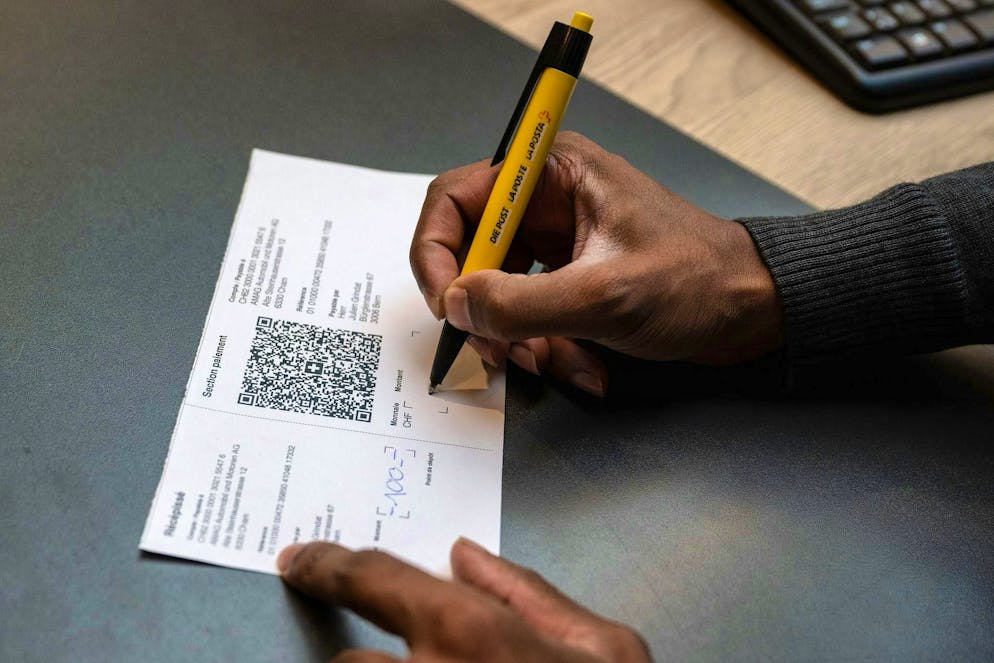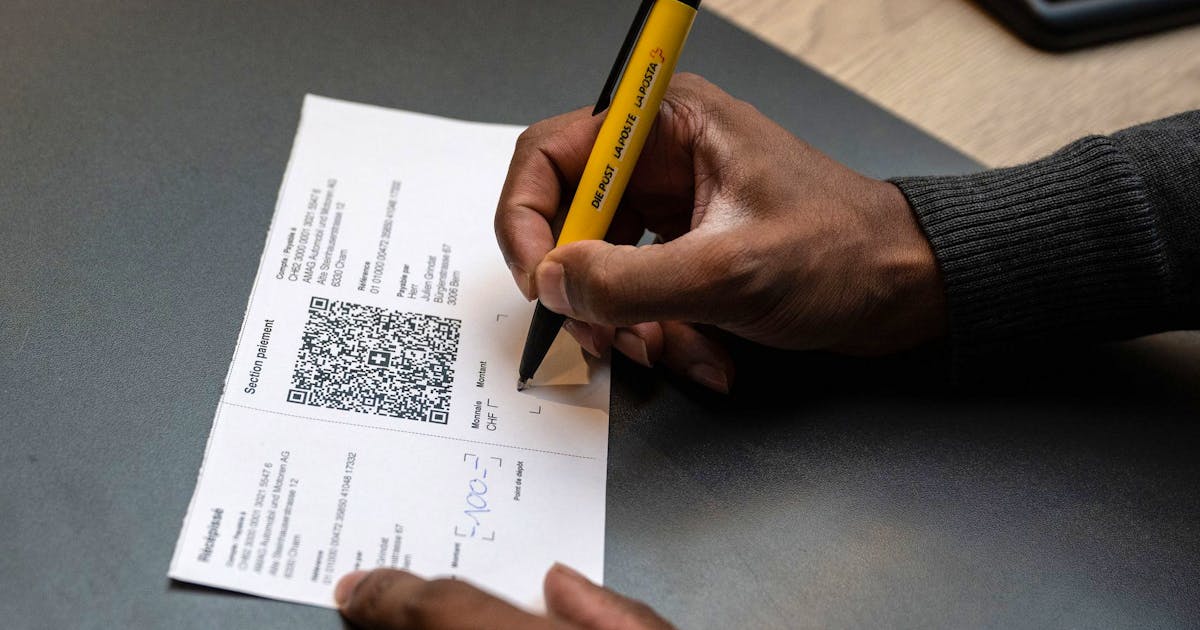
From November 21, 2025, all QR-bills must use structured addresses (address type “S”).
KEYSTONE
Changes to protection status S for Ukrainian refugees, a new entitlement period for short-time work compensation and new QR-bills. These and other changes will come into force in Switzerland from the beginning of November. An overview.
Protection status S according to country of origin
From November 1, whether refugees from Ukraine receive S protection status in Switzerland will depend on where they come from. This was decided by the Federal Council at the beginning of October. With the different treatment depending on the region of origin, the Federal Council wants to fulfill a demand from Parliament. Depending on the region of origin, a return there is considered reasonable or unreasonable. The new rule will be applied to all applications that are examined from this cut-off date, even if they were submitted before.
The new rule will also apply to trips home from November 1: Anyone with S status will only be allowed to travel to Ukraine for 15 days every six months instead of the current 15 days per quarter. The distinction by region of origin does not apply to people living in Switzerland with protection status. The new provision will also not apply to family members of Ukrainian refugees with S status who are still in Ukraine. However, the Federal Council intends to continue protection status S itself until March 4, 2027.
Longer period of entitlement for short-time work compensation
The Federal Council is extending the maximum period of entitlement to short-time work compensation from the current 18 months to 24 months. In doing so, it is implementing a decision made by Parliament in the fall session. The amended ordinance comes into force on November 1. The aim of the new regulation is to support companies in the mechanical and electrical engineering industries (MEM industries) and the watchmaking industry in particular, as well as their suppliers, which have been suffering from economic weakness for the past two years and have already introduced short-time working.
Added to this are the tariffs of 39% imposed by the USA for an indefinite period. Last year, the maximum duration of benefits was extended from 12 to 18 months. However, short-time working may not be used for several years without interruption. After 24 months, a so-called waiting period of six months applies.
In future, an average interchange fee of a maximum of 0.15 percent may be charged at physical points of sale in Switzerland. Interchange fees are charged when paying by card. This was agreed by the Competition Commission and the credit card giant Visa in the summer.
Cross-border fees will also be lower. If a customer pays at a Swiss merchant with a Visa card from the EEA area, the interchange fee for debit cards will fall to 0.2 percent from the current 1 percent. For credit cards, the charge is now 0.44 percent instead of 1.15 percent. This will save Swiss retailers more than CHF 10 million a year, the Competition Commission calculates.
New Schengen entry system at Zurich Airport
Zurich Airport is introducing a new entry and exit system from November 17. It is thus joining the EU system. The aim is to document stays – entries and exits – in the Schengen area more transparently and to increase security standards.
The entry-exit system (EES) will replace the previous manual stamping of travel documents. Electronic entries will now be created and biometric features (facial image and fingerprints) recorded when third-country nationals enter the country.
Basel-Mulhouse and Geneva airports already introduced the new system in mid-October.
From November 21, 2025, all QR-bills must use structured addresses (address type “S”), i.e. the division of the address in the Swiss QR Code into individual elements. Otherwise, payments will no longer be possible. Unstructured addresses will therefore be abolished.
In addition, the character set will be extended on this date to better support special characters and umlauts. This adjustment affects everyone who creates or processes invoices with QR codes.
